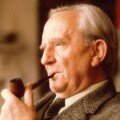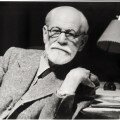This post is part of our Inspirational People series, covering the life stories and lessons from some of the worlds most successful and influential people. For more posts like this one, click here.
Abraham Lincoln is well regarded as one of the greatest influencers in American history. With his great appeal and incredible impact, this is the story of his life from ‘humble beginnings’ to the greatest position in America and his changing of it for the better.
Abraham Lincoln: His Life Biography
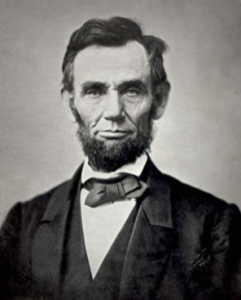 Abraham Lincoln was born in Hodgeville, Hardin County, Kentucky on the 12th February 1809 to Thomas Lincoln and Nancy Hanks Lincoln. His father, Thomas was a pioneer who had found a good level of prosperity and was a man of well respect in the community. He had three children with Nancy including Lincoln, his older sister Sarah and younger brother who died as an infant, Thomas.
Abraham Lincoln was born in Hodgeville, Hardin County, Kentucky on the 12th February 1809 to Thomas Lincoln and Nancy Hanks Lincoln. His father, Thomas was a pioneer who had found a good level of prosperity and was a man of well respect in the community. He had three children with Nancy including Lincoln, his older sister Sarah and younger brother who died as an infant, Thomas.
The family were forced to move from Kentucky to Perry County, Indiana in 1817 due to a land dispute. Here the family had to squat on public land, hunt game and farm a small plot, ending when Thomas eventually brought the land.
Nancy’s Death
When Abraham was just 9 years old, his mother died of tremetol (a milk sickness) at just 34 years old, devastating the young Abraham, who had surely only just come round to realise what death and mortality was all about. He became distant from and alienated by his father and began to resent the work placed on him at such an age.
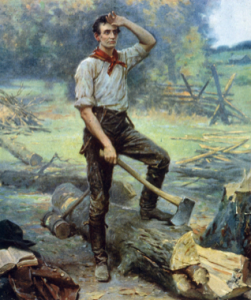 A few months later and Thomas, Lincoln’s father, re-married to Sarah Bush Johnson, a widow with three children of her own, and Lincoln began to bond with her well. She encouraged him to read and he would walk for miles to borrow the books so he could.
A few months later and Thomas, Lincoln’s father, re-married to Sarah Bush Johnson, a widow with three children of her own, and Lincoln began to bond with her well. She encouraged him to read and he would walk for miles to borrow the books so he could.
In March 1830, the family moved again, this time to Macon County, Illinois, where Abraham now 22 began making a living for himself in manual labour. A few years later and Lincoln migrated again, now to New Slem, Illinois where from one to another over a few years he worked as a shopkeeper, postmaster and finally a general store owner. It’s believed it was here where he developed the social skills and story telling talent which made him popular with the locals at the time and popular with the voters later on.
The Black Hawk War & After
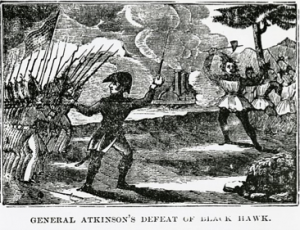 In 1832 the Black Hawk War broke out between the United States and the Native Americans, and Lincoln after being voted in by volunteers, elected Lincoln to be their captain. No combat was seen during his time but it is said this is the time where he made some important political connections, which would aid him later on.
In 1832 the Black Hawk War broke out between the United States and the Native Americans, and Lincoln after being voted in by volunteers, elected Lincoln to be their captain. No combat was seen during his time but it is said this is the time where he made some important political connections, which would aid him later on.
Following the Black Hawk War, Abraham began in his pursuit of a political career and in 1834 was elected to the Illinois state legislature as a member of the Whig party.
The party supported government-sponsored infrastructure and protective tariffs, which is believed to of led Lincoln to his early views on slavery; although not so much as it being a moral wrong, but instead, as he believed it was an impediment on economic development for the country.
Around this time, Lincoln decided he wanted to become a lawyer and began teaching himself the law through reading. He then moved to Springfield, Illinois in 1837 and began to practice in the law firm, John T. Stuart. Not long after moving to Springfield, he met Anne Rutledge, but before they even had chance to get engaged, Anne was hit by typhoid fever and she died at age 22, which was said to of left Lincoln severely depressed.
Entrance into Politics
From 1847 to 1849, Lincoln served a term in the U.S. House of Representatives and used his term to speak out against the Mexican-American War and in 1848 supported Zachary Taylor for President. But it was his criticism of the war, which made him unpopular back home and he decided rather then run for a second term, he’d return to Springfield to practice law once more.
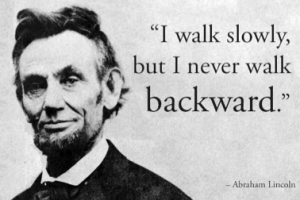 He did and by the 1850’s, Lincoln had a lot of work coming his way as the railroad industry moved west and Illinois became a major hub for many companies including banks, insurance companies and insurance firms. He spoke in court cases for all of these and occasionally some criminal trials to.
He did and by the 1850’s, Lincoln had a lot of work coming his way as the railroad industry moved west and Illinois became a major hub for many companies including banks, insurance companies and insurance firms. He spoke in court cases for all of these and occasionally some criminal trials to.
In 1840, Lincoln became engaged to Mary Todd, a well-educated woman from a well-distinguished family of Kentucky. However, in 1841 the engagement was called off, later meeting once again at a social function and finally marrying on the 4th November 1842. They went on to have four children, of which only one, Robert, survived to adulthood, something of a common occurrence in 19th Century America.
Presidential Election
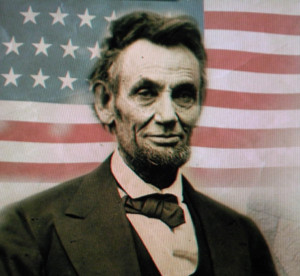 In 1854 the Kansas-Nebraska Act was passed by Congress, which allowed individual states and territories to decide for themselves whether to allow slavery or not on their region. Violent opposition was provoked in Kansas and Illinois, which awakened Abrahams political surge once more and his opinions on slavery moved toward moral reason over economic ones. He joined the Republican Party in 1856.
In 1854 the Kansas-Nebraska Act was passed by Congress, which allowed individual states and territories to decide for themselves whether to allow slavery or not on their region. Violent opposition was provoked in Kansas and Illinois, which awakened Abrahams political surge once more and his opinions on slavery moved toward moral reason over economic ones. He joined the Republican Party in 1856.
The Supreme Court issued again in 1987 that African Americans were not citizens and had no inherent rights, and although Lincoln did not feel African Americans were equal to whites, he did believe the American founders had intended all men to have certain inalienable rights. He went on to challenge the U.S. senator Douglas for his seat and criticized Douglas, the Supreme Court, and President Buchanan in his nomination speech for promoting slavery and declared that “a house divided cannot stand.”
Following this, debates we’re held at cities across Illinois about issues ranging from state rights to western expansion, but the central and most beefy issue of all was slavery. The debates were covered intensely by the papers and although the state legislature finally elected Douglas again, the exposure Lincoln got, through him into national politics.
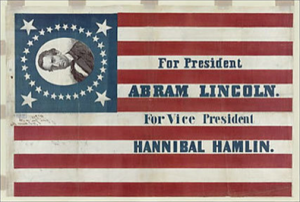 In 1860 a campaign to support Lincoln for presidency was organised by political operatives in Illinois, and Lincoln was nominated, in most part due to his moderate views on slavery, the protective tariff and his support for improving the national infrastructure.
In 1860 a campaign to support Lincoln for presidency was organised by political operatives in Illinois, and Lincoln was nominated, in most part due to his moderate views on slavery, the protective tariff and his support for improving the national infrastructure.
In the general election, Lincoln was once again facing his friend and rival, Stephan Douglas, as well as John C. Breckinridge of the Northern Democrats and John Bell of the constitution Party. Lincoln received 180 of the 303 Electoral votes and just less then 40 per cent of the popular vote, finally being elected for President of the United States.
It was now March 1861 and seven Southern states had already seceded from the Union before his inauguration. By April, Fort Sumter, a U.S. military installation was under siege in Charleston Harbour, South Carolina and in the early hours of April 12, the guns stationed to protect the harbour began to blaze towards the fort. This signalled the start of America’s costliest and most deadly conflict in its history.
The American Civil War
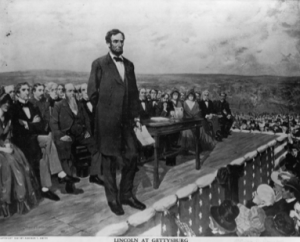 The crisis was present and Lincoln responded using powers like no other president before him. Without any appropriation from congress, he distributed $2 million (equivalent to more like $60 Million today) from the Treasury for war materials, called 75’000 volunteers into the military without a declaration of war and suspended the writ of habeas corpus, allowing the arrest and imprisonment of suspected confederate sympathizers without warrant.
The crisis was present and Lincoln responded using powers like no other president before him. Without any appropriation from congress, he distributed $2 million (equivalent to more like $60 Million today) from the Treasury for war materials, called 75’000 volunteers into the military without a declaration of war and suspended the writ of habeas corpus, allowing the arrest and imprisonment of suspected confederate sympathizers without warrant.
Crushing the rebellion was sure to be difficult and Lincoln faced disparagement and defiance from all directions, often finding himself in disagreement with his generals, cabinet, and a majority of the American people.
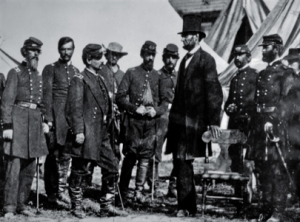
However on September 22, 1862 the Union secured a hopeful but non-conclusive victory at Antietam and Abraham felt confident enough to reshape the cause of the war from ‘union’ to the abolishment of slavery.
He went on to issue the ‘Emancipation Proclamation’ on January 1, 1863, stating that all individuals who were held as slaves “henceforward shall be free.”
And by virtue of the power, and for the purpose aforesaid, I do order and declare that all persons held as slaves within said designated States, and parts of States, are, and henceforward shall be free; and that the Executive government of the United States, including the military and naval authorities thereof, will recognize and maintain the freedom of said persons.
– Emancipation Proclamation, January 1, 1863
War effort improved for the North, but by 1864 the Confederacy had turned to guerilla warfare. The Presidential election was soon to be back again and Lincoln was certain he’d be a one-term president. However, he received 55 percent of the vote with 212 of 243 Electoral votes and was re-elected once more, most probably due to the recognition and reputation he had gained from the views and actions he had made clear to the public before and during his presidency. He was seen as a man who could get things done.
On April 9th, 1865 commander of the Army of Virginia, General Robert E. Lee, surrendered his forces to the Union and the great American civil war was over.
Assassination of the President
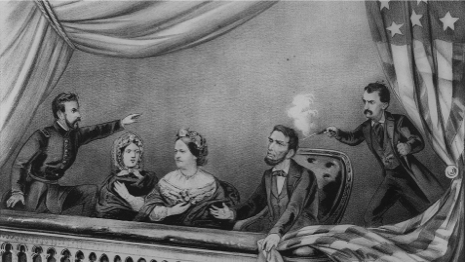
Lincoln had begun reconstruction during the war and favored a policy of fast reunification with minimal retribution. He was confronted by a radical group of Republicans in the Senate and house that wanted complete allegiance and repentance from former Confederates.
However, he was assassinated on April 14, 1865 by the well-known actor and Confederate sympathizer John Wilkes Booth before a political battle had any chance of developing with the radical republicans.
Assassinated at Ford’s Theatre in Washington D.C., Lincoln was taken across the road from the theatre to a Petersen House where he laid in a coma for nine hours before dying the following morning. His body was laid in state at the Capitol before he was took back to his final resting place in Springfield, Illinois by funeral train.
Lessons from Abraham Lincoln
Abraham Lincoln may be a long way back in the past, but his life is still one of true interest and inspiration to many people around the world today. He made great sacrifices during his lifetime to bring change to our world, and his life story, even back from the 1800’s still holds some very relevant lessons today.
Gain A Good Reputation
Lincoln had built up a great reputation through his life, both with his friends and with the public. He met people everywhere he went and spoke with them, learning the importance of respect and reputation as he went.
“A good reputation is like fine china, once broken it’s very hard to repaid.” He once said. And it was his reputation, gained over years of travel around the US and publicity in its papers, which I believe lead in part to his success in the original election for president.
Make The Years Count
At the time of being shot by John Wilkes Booth, Lincoln was 56 years old. He once famously said “In the end, it’s not the years in your life that count. It’s the life in your years.” And he certainly made the most of his years, getting to view what he wanted to view and made many (if not all) of the changes to his nation which he wanted to.
Connect with People on a Personal Level
“It’s not how smart you are – strong personal relationships and high levels of trust are the foundation of effective leadership.”
We saw this with his relationships with people of Springfield, and later with people in government and so forth. By connecting with people on a personal level, Lincoln was not only able to give, get and learn more, but also build reliable and strong friendships with people in all fields of work.
It was his relationships with the people, both face to face and through the people’s perceptions of him through his opinions and the papers, which aided him in his election and in the end, in his struggle to win the Civil War and end Slavery in his nation.
It was his personal connection with the people which gained him the reputation he had and in politics was the key factor which allowed him to be successful in his dreams.
In Conclusion
Abraham Lincoln lived a lot in his life, making drastic change to his country, sparking a revolution around the world and I’d imagine having a bit of fun to. He came from a far from great upbringing and was brought up with no mother, however as he grew up he reached far and beyond what was expected of him and connected with new people from all over the US.
He gained a great reputation as both a person and a president and his affect’s on the US, more so then many other presidents to date came from no other then his embrace of life and his faith in his beliefs of what the future should be.
He made the most of his years and the most of his situation, leaving this world with a legacy and change in US history, which will never be forgotten and can be taken back. He left his mark upon the world, one greater than many other presidents’ at this time.
Wrote by Joe Brown

